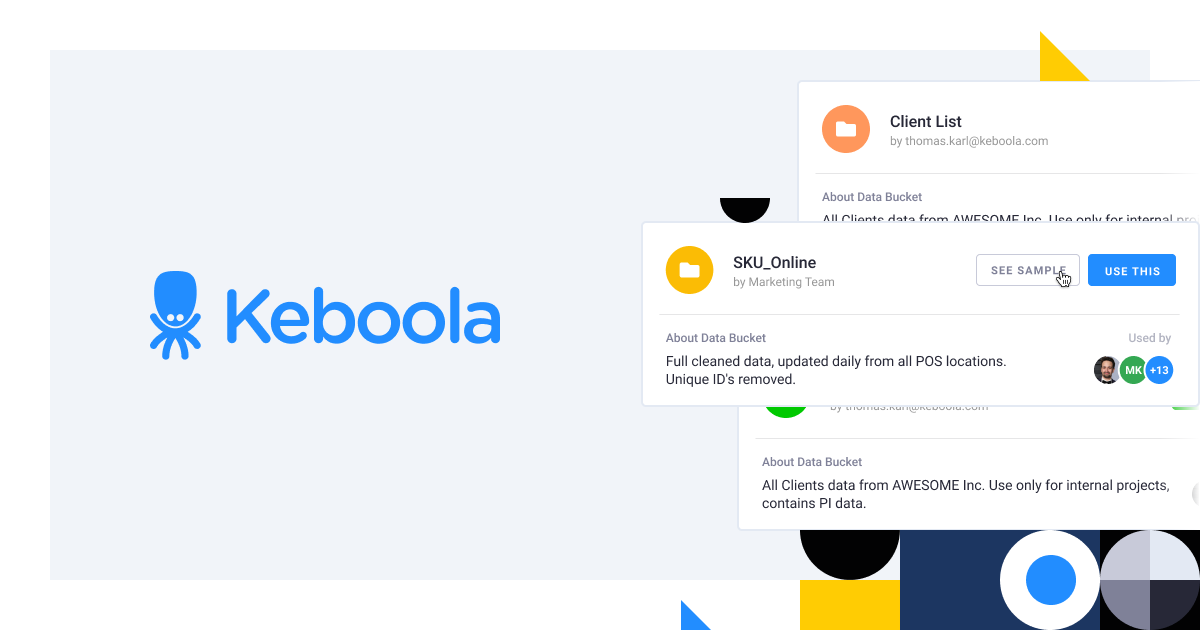Table of Contents
Overview
Tired of spending countless hours manually building and managing data pipelines? Imagine if your AI assistant could handle the heavy lifting, transforming your data workflow descriptions into fully functional production infrastructure. Keboola MCP Server promises to do just that, empowering your AI agents like Claude, Cursor, or ChatGPT to become data engineering powerhouses. The MCP Server is an open-source bridge that connects your Keboola data platform to AI assistants, implementing the Model Context Protocol (MCP) standard created by Anthropic. Let’s dive into this innovative tool and see if it lives up to the hype.
Key Features
Keboola MCP Server boasts a compelling set of features designed to streamline data pipeline creation and management:
- AI-driven pipeline generation: Automatically generates data pipelines based on your workflow descriptions, significantly reducing manual coding efforts. The system can create complete ETL pipelines, including data ingestion, transformation, and orchestration workflows.
- Built-in governance and logging: Ensures data integrity and compliance with comprehensive logging and governance features baked right in. Keboola collects metadata about every operation on the platform, including component setup, user interactions, and job execution.
- Error handling automation: Leverages Keboola’s existing error handling capabilities, which include automated error detection, logging, and notification systems. The platform provides “continue on failure” features and comprehensive error tracking.
- Workflow-based deployment: Deploys your data pipelines based on defined workflows through Keboola Flows, which offer robust scheduling, notifications, and automated execution capabilities.
How It Works
The magic of Keboola MCP Server lies in its ability to translate your data workflow descriptions into tangible infrastructure. Here’s a simplified breakdown of the process:
- Users describe their data workflow: You provide a clear and concise description of your desired data flow, outlining the steps involved in processing your data.
- AI agents interpret and create pipelines: Your chosen AI agent (Claude, Cursor, ChatGPT, etc.) interprets your description and automatically generates the necessary data pipeline code using MCP protocol tools.
- Keboola MCP handles deployment, monitoring, and governance: Keboola MCP Server takes over, deploying the generated pipeline through the Keboola platform, monitoring its performance, and ensuring adherence to established governance policies.
The system supports querying data with SQL or search-style prompts, creating end-to-end ETL pipelines, and automatically documenting data flows.
Use Cases
Keboola MCP Server opens up a range of exciting possibilities for data-driven organizations:
- Automated data engineering: Automate repetitive data engineering tasks, freeing up your team to focus on higher-level strategic initiatives. Companies like Groupon and Apify report shipping pipelines 10 times faster.
- Data pipeline deployment: Quickly and easily deploy data pipelines for various applications, accelerating time-to-value for your data projects. The platform supports over 250 pre-built connectors for data sources.
- AI-assisted infrastructure management: Leverage AI to manage and optimize your data infrastructure, improving efficiency and reducing operational costs. The system can perform customer segmentation, RFM analysis, and dashboard creation automatically.
Pricing and Availability
Important Note: The original content failed to mention crucial pricing information. Keboola MCP Server is included at no additional cost within Keboola projects.
Keboola offers:
- Free Tier: 60 free computation minutes per month, ideal for prototyping and learning
- Pay-As-You-Go: Additional minutes at \$0.14 per minute
- Enterprise Plans: Custom pricing with advanced features, premium SLAs, and dedicated support
Pros \& Cons
Like any tool, Keboola MCP Server has its strengths and weaknesses. Let’s examine the key advantages and disadvantages:
Advantages
- Streamlines pipeline creation, significantly reducing the time and effort required to build data pipelines
- Reduces manual engineering, freeing up data engineers to focus on more complex tasks
- Offers strong governance features, ensuring data quality and compliance
- Open-source and free to use with Keboola’s free tier available
- Supports both technical and non-technical users through natural language interaction
Disadvantages
- Requires AI integration knowledge, meaning you’ll need some familiarity with integrating AI agents into your workflow
- May not support highly custom workflows, potentially limiting its applicability for very specific or unconventional data processing needs
- Costs can escalate quickly due to Keboola’s credit consumption pricing model
- Limited to Keboola ecosystem – requires a Keboola account and project to function
How Does It Compare?
When evaluating data orchestration tools, it’s important to consider the alternatives. Here’s how Keboola MCP Server stacks up against some popular options:
- Apache Airflow: While powerful, Airflow relies on manual orchestration, requiring significant coding and configuration. Keboola MCP Server offers a more automated, AI-driven approach. However, Airflow provides more flexibility for complex, custom workflows and has a larger community ecosystem.
- Prefect: Prefect provides a modern orchestration platform with strong monitoring and debugging capabilities. While Prefect lacks the deep AI integration capabilities of Keboola MCP Server, it offers better documentation and is Python-native, making it more suitable for development teams comfortable with coding.
- Key Differentiator: Unlike traditional orchestration tools, Keboola MCP Server’s main advantage lies in its AI-first approach, allowing natural language pipeline creation rather than code-based development.
Technical Requirements and Setup
Missing Information Added: The original content omitted important technical details:
- Requires installation of
uvpackage manager - Compatible with Claude Desktop, Cursor, Windsurf, VS Code, and other MCP-compatible tools
- Setup typically takes less than 10 minutes according to user feedback
- Supports OAuth authentication and project authorization
Final Thoughts
Keboola MCP Server presents a compelling vision for the future of data engineering, where AI agents play a central role in building and managing data pipelines. While it may not be a perfect fit for every organization, its ability to streamline pipeline creation, automate error handling, and enforce strong governance makes it a tool worth exploring, especially for those looking to leverage the power of AI in their data workflows.
However, potential users should carefully consider the pricing model and ensure their use cases align with Keboola’s platform capabilities before committing to the ecosystem. The tool shows particular promise for organizations seeking rapid prototyping and deployment of data pipelines without extensive coding requirements.
